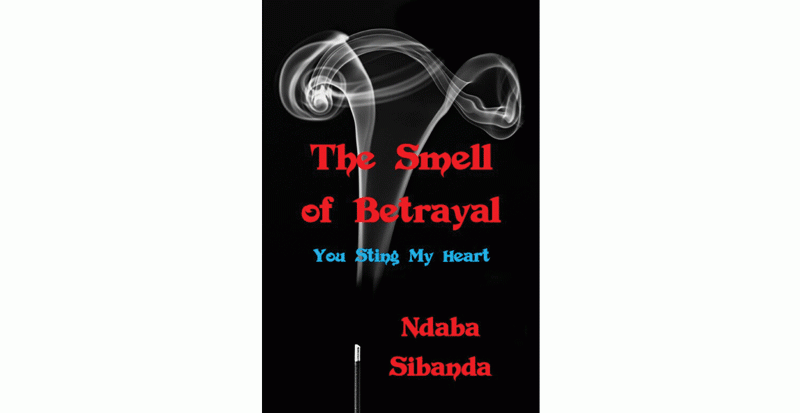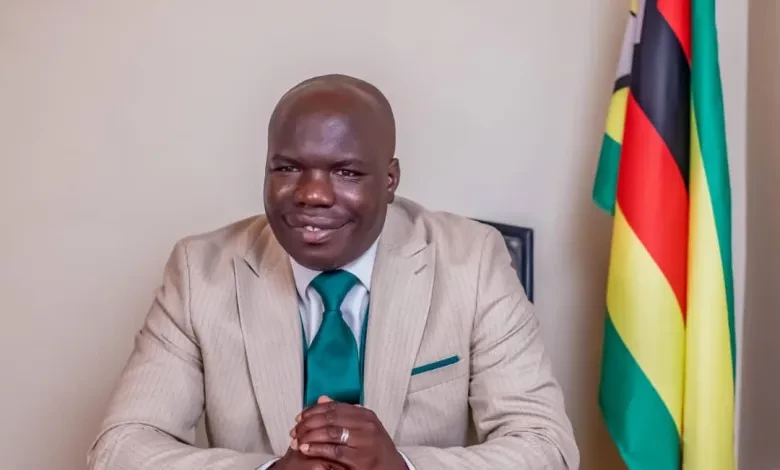
By Pentecost Mate
Contributors and their Story Titles
Compiled and edited by Ndaba Sibanda, the contributors to this rich and screamingly spellbinding text equally burst into their literary spaces and pages with dazzling, delightful, and different magic that keeps the reader banqueting, drooling, and awe-struck.
Sifanele Sibanda sets the tone high with her moving movie-like story titled The Deadly Big Bully. Then Khumbulani Malinga marks his royal and entrancing entrance with his Love Letter. Ntombizenhla Nxumalo poses the critical question Is This the Way It Should Be? On the other hand, Pentecost Mate’s proficient brush intensely paints The Rural Bathtub. Robert Mugore smartly discusses and dissects The Devil I Know. Banqobile Virginia Dakamela rightly reads Money Changer-in Law the riot act. Norah Sibotshwa has no kind words for Betrayal, and Ndaba Sibanda is transfixed and staggered after spotting The Immigrant with A Difference.
Introduction
This is an anthology of eight hypnotising short stories whose language, themes, styles, depth, diversity, and handling all make it extraordinarily fresh, imperative, and haunting. The collection The Smell of Betrayal: You Sting My Heart presents a profound exploration into the pervasive and malignant nature of betrayal, portraying it as a malicious force that infiltrates and corrodes interpersonal relationships, societal structures, and individual psyches. The evocative language underscores the chaotic and negative impact of betrayal, depicting it as a metaphorical carcinoma that demands vigilant resistance and collective condemnation. Through vivid imagery and poignant observations, the compilation elucidates how betrayal manifests as a catalyst for upheaval and emotional turmoil, leaving a trail of devastation and despair.
Characters
- Ben
- Miss Ncube
Ben’s Dire Living Conditions
- Book review: ‘The Smell of Betrayal: You Sting My Heart’ reviewed by Maina Wahome Part Four: The Rural Bath-Tub
Keep Reading
The Swahili proverb Usipoziba ufa, utajenga ukuta which loosely translates to “If you do not repair a crack, you will build a wall” serves as a poignant allegory that resonates deeply with the narrative depicted in ‘The Rural Bath-Tub’ by Pentecost Mate. This proverb underscores the significance of addressing minor issues before they escalate into larger problems, reflecting a universal truth about proactive problem-solving. In Mate’s story, Ben, a university graduate living in impoverished conditions, navigates the daily challenges of poverty and neglect. His struggle to maintain personal dignity and basic hygiene amidst dire circumstances illustrates the proverb’s wisdom in the context of socio-economic adversity.
The narrative unfolds with the introduction of Ben, a university graduate grappling with extreme poverty and destitution. Ben's living conditions are dire, as evidenced by his dilapidated door resembling a sieve, allowing him to observe villagers passing by with water pots. Judging from their comments, he is certain that they can also see his plight. The description of his compound paints a vivid picture of filth and repulsion, with remnants of his vomit clinging precariously, mirroring the precariousness of a security guard on duty.
Educational stagnation and family burdens
Despite his academic achievements, Ben finds himself mired in stagnation, unable to make any substantial progress in life, except for being burdened with a growing number of children and contemplating new strategies to bring more lives into the world. This portrayal highlights the frustration and hopelessness experienced by Ben, despite his educational background.
Driven by his desperation, Ben forcefully pushes open the door, resulting in an irritating squeak. Even a cockroach, peering through the keyhole, seems to express pity for this highly qualified graduate forced to occupy squalid chambers where flies, bacteria, and bugs thrive. The cockroach, with its delicate antennae, shakes its head in what appears to be a gesture of disbelief and sympathy towards Ben's unfortunate circumstances.
“If only I had a necktie, I would do better than this.”
Improvised ‘Shower Set-up’ and Ingenious Navigation of the Blair Toilet
Ben resolves to take a shower, despite the lack of proper amenities. He reaches for a towel, which appears worn and uninviting. The soap he possesses is dirty, further emphasizing the lack of basic hygiene resources. Undeterred, Ben follows a familiar path to the Blair toilet, which serves as a makeshift bathroom in the morning.
Ben’s attention is drawn to Miss Ncube, a respected female teacher, engaged in the task of kindling a fire to warm her bathing water. Ben affectionately waves at her, a gesture of recognition and camaraderie, which she reciprocates with a friendly wave. Such interactions are customary in this close-knit community, where neighbors regularly acknowledge one another's presence and foster a sense of communal connection.
However, as Ben proceeds towards the Blair toilet, he becomes acutely aware of the villagers passing by on their way to the nearby borehole. They catch sight of the nudity of a university graduate, reflecting his vulnerability and lack of privacy in this makeshift bathroom setting. Ben intends to ward off the incessant flies that plague the Blair toilet, necessitating his decision to undress.
Navigating the Blair toilet, which is shared by both men and women, demands a significant degree of ingenuity and resourcefulness. The task of squatting in this unisex facility requires a level of creative engineering to maneuver effectively. As Ben enters the toilet, his foot inadvertently lands on a soft object, causing it to slip and giving the impression of a living being.
“Shit!” he exclaims, “Miss Ncube must have been here earlier today,” he says to himself, “These young teachers from college are not yet used to our rural diet, no wonder they constantly get stomach upsets.”
He creates soapy foam which later messes up with his sight because he has itching eyes. When he is in this condition, he hears footsteps and their sounds get louder with each movement. He thinks it is Miss Ncube and he shouts,
“Please don’t get any closer, I’m still bathing.”
Mischievous Donkey Encounter
The sound of footsteps emanating from the vicinity of the Blair toilet gradually recedes, hinting at the departure of an unknown presence. Ben, catching a glimpse of the retreating figure, finds solace in the fact that he can now proceed with his shower undisturbed. With a contented smile on his face, he wrings his towel and proceeds to diligently dry his body.
However, upon returning to the spot where he had left his clothes, Ben is met with an unexpected sight. His garments, which he had left "waiting" for him, have vanished without a trace. It turns out that a mischievous donkey had seized the opportunity and absconded with his pair of trousers, trotting away into the distance.
This peculiar incident unfolds in the early hours of the morning, causing a stir in the community. Villagers, school pupils, and other teachers observe the spectacle with a mixture of astonishment and amusement. The scene of a disrobed university graduate desperately chasing after a female donkey becomes the subject of local gossip and curiosity.
The encounter between Ben and the donkey captures the attention of local newspapers, who seize the opportunity to create attention-grabbing headlines, laden with an air of foreboding and intrigue.
Wale ukubhadala, yabaleka lempahla “He refused to pay and it ran away with his clothes”.
Utshayelwe isikhwama ngubabhemi egeza “He was robbed by a donkey while taking a bath.”
The bewildering sight of Ben fervently chasing after the donkey left the villagers perplexed, giving rise to speculations and contemplation. Some wondered if this peculiar pursuit was yet another of Ben's unconventional strategies to expand his already sizable brood of children. After all, given his track record, such unexpected and unconventional approaches seemed plausible to the villagers.
On the other hand, some villagers, with a touch of whimsy, saw this event as a manifestation of the cockroach's secret desires and unspoken prayers. The notion that the cockroach, observing Ben's pursuit, might have silently yearned for a necktie - an accessory so far removed from its existence - added a surreal dimension to the unfolding scene. It became a topic of lighthearted discussion and playful imagination within the community.
The villagers caught between rational explanations and whimsical musings, found themselves engaged in animated conversations, attempting to decipher the true nature of Ben's chase and the potential significance behind it. This unexpected incident injected an element of curiosity and amusement into their daily lives, providing a temporary respite from the mundane routines of the small village.
Stylistic Devices Similes
Similes are figures of speech that make a comparison between two different things, using “like” or “as” to establish the resemblance. They are used to create vivid imagery and enhance the reader's understanding by drawing parallels between seemingly unrelated concepts. Here are the similes from the text:
"Like a swooping eagle, he dives at his soap and retreats to his shell": This simile compares the person's actions to those of an eagle diving and then retreating, suggesting quick and decisive movements.
"Ben shivers like an old lorry on a gravel road frequented by buses": This simile likens Ben's shivering to the trembling of an old lorry on a bumpy road, emphasizing the intensity and uncontrollability of his shivers.
"Ben rises from his bed like the Biblical Lazarus and drags his feet towards a door that looks like a sieve": This simile compares Ben's rising from bed to the resurrection of Lazarus from the Bible, implying that he rises slowly and with difficulty. The mention of the door looking like a sieve adds to the picture of a frail and dilapidated environment.
Metaphor
Metaphors are also figures of speech that make a comparison between two different things, but without using "like" or "as." Instead, they assert that one thing is another. They are used to create strong associations and deepen the reader's understanding. Here are the metaphors from the text:
"Grinding mill in his head": This metaphor describes the person's mental activity as a grinding mill, implying that their thoughts are constantly churning and working.
"His eyes have turned into buttons": This metaphor suggests that the person's eyes have become small and round like buttons, possibly indicating a lack of expressiveness or emotion.
Irony
Irony is a rhetorical device that expresses a meaning contrary to the literal interpretation of the words. It often involves a contrast between what is expected and what happens. In the given text, irony is used to highlight the unexpected or contradictory aspects of the situation. Here is an example of irony:
"It is quite ironic that Ben is a university graduate yet he cannot keep the hygiene of his house and body. He cannot even use his knowledge to do some repairs in the sieve-like door of his room": This statement points out the irony of Ben's situation. Despite being educated and having knowledge, he fails to maintain cleanliness and cannot even fix a simple problem with his door.
Local Dialect
The use of local dialect involves incorporating words and phrases from a specific regional or cultural variety of a language. It adds authenticity and flavor to the text, capturing the local nuances and idiosyncrasies. Here are the examples of local dialect:
Wale ukubhadala, yabaleka lempahla “He refused to pay and it ran away with his clothes”: This phrase, written in a local dialect, expresses a situation where someone didn't pay for their clothes and as a consequence, the clothes disappeared or were taken away.
Utshayelwe isikhwama ngubabhemi egeza “He was robbed by a donkey while taking a bath: This phrase, also in a local dialect, describes a person being robbed by a donkey while they were taking a bath. It presents a humorous and unexpected scenario.
Themes
A theme is a central idea or concept that is explored or developed throughout a literary work. It is a recurring or underlying message that the author wants to convey to the readers. Themes often reflect on the human condition, society, or specific aspects of life.
Poverty
The theme of poverty is evident in the passage. Ben's life is characterized by extreme poverty and deprivation. The vivid descriptions of his living conditions, such as living from hand to mouth, abject poverty, and penury, highlight the extent of his financial struggles. The passage emphasizes the stark contrast between Ben's poverty and the villagers' activities, which further accentuates his sense of exclusion and marginalization.
“Ben rises from his bed like the Biblical Lazarus and drags his feet towards a door that looks like a sieve. Through it, he can see villagers carrying water pots and he is certain, from their comments, that they can see him too. The leftovers of his vomit still hang precariously like the life of a security guard on night duty. The grinding mill in his mind is at work. The only tangible thing he has achieved in his entire life, as a school teacher, is a bunch of children and new strategies of even adding some more to the world.”
“The size of this shared Blair toilet does not allow for freedom of expression. If one tries to ward off the flies, a lapse in concentration attracts soul-destroying laughter as villagers see the early morning nudity of a graduate on their way to the borehole. The ladies-cum-gents’ toilet is so small that to squat in it effectively, and efficiently, without being noticed by the passers-by, one must reverse into it so that at least the bigger part of the body is safely tucked in. A substantial degree of creativity in engineering such as ingenuity in maneuvering this task is needed. However, with the sightless hindquarter of a human being blindly waving chunks of flesh normally hidden to flies, scorpions, or bugs, there are risks of igniting a festivity for these pests.”
Education
The theme of education is intertwined with the theme of poverty in the given passages. Despite the dire conditions in which Ben lives, he is a university graduate and a school teacher. This juxtaposition highlights the importance of education as a means of personal growth and empowerment. It suggests that education can provide individuals with opportunities to overcome poverty and improve their lives.
“The grinding mill in his mind is at work. The only tangible thing he has achieved in his entire life, as a school teacher, is a bunch of children and new strategies of even adding some more to the world.”
Insecurity
The passage further highlights the theme of insecurity in Ben's living environment. Ben's lack of privacy is emphasized as he has to constantly be on guard, even when taking a bath. This lack of privacy leaves him vulnerable and perpetuates a sense of insecurity.
The passage describes the fading footsteps, indicating that someone was approaching Ben's living area. This immediately puts Ben on alert, and he gathers his courage to cautiously look outside. The use of the word "furtively" suggests that he is being secretive and cautious in his actions, further emphasizing the atmosphere of insecurity.
To his shock, Ben witnesses something unexpected. The passage doesn't explicitly state what he sees, leaving it open to interpretation. However, this unexpected sight prompts Ben to impulsively rush out of the toilet, disregarding his undressed state. His primary motivation is to retrieve his trousers and shirt from the donkey before they are irreparably damaged or lost.
The donkey's presence adds an element of chaos and unpredictability to the scene. Startled by Ben's sudden pursuit, the donkey trots away. The villagers, school pupils, and other teachers who witness this spectacle are depicted as watching in amazement. This suggests that Ben's actions, driven by his desperation and insecurity, are seen as unusual and even comical to those observing.
The passage further reinforces the theme of insecurity by depicting Ben's constant need to be vigilant and his impulsive actions driven by his fear of losing his belongings. It exemplifies the lengths to which he is willing to go to protect what little he has, even if it means pursuing a donkey in a state of undress. The scene serves as a vivid portrayal of the extreme measures individuals in poverty may resort to in their quest for security and survival.
"The footsteps continue to fade away. Ben gathers his courage and looks furtively outside. Shocked, he is, he is to see the unexpected. Impulsively, he rushes out of the toilet in pursuit of his pair of trousers and shirt, hoping to snatch these before the donkey chewing them finally swallows them. Startled, the donkey trots away. Villagers, school pupils, and other teachers watch in amazement as the undressed graduate pursues the female donkey in the early hours of the morning."
Conclusion
The narrative delves into the life of Ben, a university graduate who grapples with poverty and destitution, despite his educational qualifications. The story highlights the contrast between Ben’s dire living conditions and the camaraderie of his community, incorporating elements of humor and absurdity to underscore the challenges of social inequality and the limitations of education in addressing socio-economic issues. Through vivid descriptions and a blend of stylistic devices, the narrative paints a poignant yet amusing picture of Ben’s struggles, emphasizing themes of poverty, social disparity, and the enduring spirit of community.
About reviewer
Maina Wahome, a polymath from Kenya, is a distinguished linguist, educator, author, playwright, and poet. He holds a Bachelor of Education (B.Ed. Arts) with a specialization in English and Literature from Laikipia University in Kenya and a Master's degree in Linguistics from Universitas Diponegoro in Indonesia.Wahome's expertise spans Phonology, Morpho-Syntax, Cognitive Linguistics, Semantics, and Natural Semantic Metalanguage (NSM). His contributions include research articles and literary works such as novels, plays, and anthologies of poems. His academic and creative endeavors reflect a deep commitment to linguistic exploration and literary innovation.










